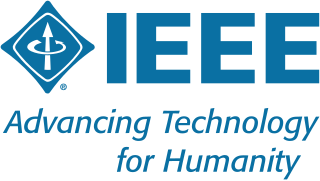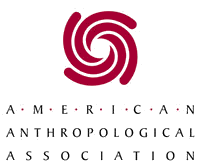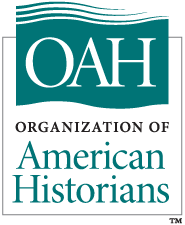
The National Center for Science Education (NCSE) is a not-for-profit membership organization in the United States whose stated mission is to educate the press and the public on the scientific and educational aspects of controversies surrounding the teaching of evolution and climate change, and to provide information and resources to schools, parents, and other citizens working to keep those topics in public school science education. Based in Oakland, California, it claims 4,500 members that include scientists, teachers, clergy, and citizens of varied religious and political affiliations. The Center opposes the teaching of religious views in science classes in America's public schools; it does this through initiatives such as Project Steve. The Center has been called the United States' "leading anti-creationist organization". The Center is affiliated with the American Association for the Advancement of Science.

The Institute of Electrical and Electronics Engineers (IEEE) is a 501(c)(3) professional association for electronics engineering, electrical engineering, and other related disciplines with its corporate office in New York City and its operations center in Piscataway, New Jersey. The mission of the IEEE is advancing technology for the benefit of humanity. The IEEE was formed from the amalgamation of the American Institute of Electrical Engineers and the Institute of Radio Engineers in 1963.

The American Anthropological Association (AAA) is an organization of scholars and practitioners in the field of anthropology. With 10,000 members, the association, based in Arlington, Virginia, includes archaeologists, cultural anthropologists, biological anthropologists, linguistic anthropologists, linguists, medical anthropologists and applied anthropologists in universities and colleges, research institutions, government agencies, museums, corporations and non-profits throughout the world. The AAA publishes more than 20 peer-reviewed scholarly journals, available in print and online through AnthroSource. The AAA was founded in 1902.

The American Chemical Society (ACS) is a scientific society based in the United States that supports scientific inquiry in the field of chemistry. Founded in 1876 at New York University, the ACS currently has more than 155,000 members at all degree levels and in all fields of chemistry, chemical engineering, and related fields. It is one of the world's largest scientific societies by membership. The ACS is a 501(c)(3) non-profit organization and holds a congressional charter under Title 36 of the United States Code. Its headquarters are located in Washington, D.C., and it has a large concentration of staff in Columbus, Ohio.

The University of Jordan, often abbreviated UJ, is a public university located in Amman, Jordan. It was founded in 1962 by royal decree, and it is the largest and oldest institution of higher education in Jordan. It is located in the capital Amman in the Jubaiha area of the University District. It is composed of 20 faculties, and it contains over 95 departments.The main strategy and rule for the university is to be global and productive in all the educational fields of it.

The American Society for Reproductive Medicine (ASRM) is a nonprofit, multidisciplinary organization for advancement of the science and practice of reproductive medicine. The society has its headquarters in Washington, D.C and its administrative office in Birmingham, Alabama.

The Organization of American Historians (OAH), formerly known as the Mississippi Valley Historical Association, is the largest professional society dedicated to the teaching and study of American history. OAH's members in the U.S. and abroad include college and university professors; historians, students; precollegiate teachers; archivists, museum curators, and other public historians; and a variety of scholars employed in government and the private sector. The OAH publishes the Journal of American History. Among its various programs, OAH conducts an annual conference each spring, and has a robust speaker bureau—the OAH Distinguished Lectureship Program.

The American Educational Research Association is a professional organization representing education researchers in the United States and around the world. AERA's mission is to advance knowledge about education and promote the use of research in educational practice.

SAGE Publishing, formerly SAGE Publications, is an American independent publishing company founded in 1965 in New York by Sara Miller McCune and now based in Newbury Park, California.
The European Molecular Biology network (EMBnet) is an international scientific network and interest group that aims to enhance bioinformatics services by bringing together bioinformatics expertises and capacities. On 2011 EMBnet has 37 nodes spread over 32 countries. The nodes include bioinformatics related university departments, research institutes and national service providers.
The Journal of Book of Mormon Studies is an annual peer-reviewed academic journal covering topics surrounding the Book of Mormon. It is published by the University of Illinois Press on behalf of the Neal A. Maxwell Institute for Religious Scholarship with funding from the Laura F. Willes Center for Book of Mormon Studies.
The American Physiological Society is a non-profit professional society for physiologists. It has nearly 10,000 members, most of whom hold doctoral degrees in medicine, physiology or other health professions. Its mission is to support research and education in the physiological sciences. The society publishes 16 peer reviewed journals, sponsors scientific conferences, and sponsors awards to further this mission.
The American Evaluation Association (AEA) is a professional association for evaluators and those with a professional interest in the field of evaluation, including practitioners, faculty, students, funders, managers, and government decision-makers. As of 2014, AEA has approximately 7057 members from all 50 US states and over 60 other countries.
The Pacific Seabird Group (PSG) is an international professional ornithological society based in the US, dedicated to the study and conservation of Pacific seabirds and their environment. The objectives of the Pacific Seabird Group are exclusively scientific, educational, conservational, and nonprofit. In furtherance of these objectives, PSG's principal activities are (1) to increase the amount and quality of scientific research on Pacific seabirds, (2) to educate PSG's members and the general public of the ecology and importance of Pacific seabirds and their environment, (3) to disseminate publications and other information to accomplish this end, and (4) to advocate for the conservation of Pacific seabirds wherever they occur.focusing on the behavior, ecology, and conservation of seabirds.
A sighted child who is reading at a basic level should be able to understand common words and answer simple questions about the information presented. They should also have enough fluency to get through the material in a timely manner. Over the course of a child's education, these foundations are built on to teach higher levels of math, science, and comprehension skills. Children who are blind not only have the education disadvantage of not being able to see: they also miss out on the very fundamental parts of early and advanced education if not provided with the necessary tools.
Educational accreditation is a quality assurance process under which services and operations of educational institutions or programs are evaluated and verified by an external body to determine whether applicable and recognized standards are met. If standards are met, accredited status is granted by the appropriate agency.

Philobiblon is a biannual peer-reviewed academic journal published by the Central University Library of Cluj-Napoca, Romania, in collaboration with Cluj University Press. It was established in 1996 as a continuation of an irregular publication entitled Biblioteca și Învățămîntul.

Acadiensis: Journal of the History of the Atlantic Region is a semi-annual peer-reviewed academic journal covering the history of Atlantic Canada. The current editors-in-chief are Erin Morton and Peter Twohig. It is published by the Department of History at the University of New Brunswick, with articles in either English or French. The name Acadiensis originated with an earlier periodical with the same name, a general interest quarterly magazine for the Maritime provinces, with an emphasis on local history. It was published in Saint John, New Brunswick by David Russell Jack from 1901 to 1908 but failed due to insufficient financial support.
Polarforschung is a biannual peer-reviewed open-access academic journal published by Copernicus Publications on behalf of the German Society for Polar Research and the Alfred Wegener Institute for Polar and Marine Research. It was established in 1931, with articles appearing both in English and German. It covers a range of topics broadly related to the fields of polar, glaciological, and high-mountain research. Historically, reports from polar expeditions and reviews on polar topics were published as well. Though the journal originally published only on topics within the natural sciences, the current version of the journal includes contributions from an expanded range of polar and high-mountain research disciplines, including biology and ecology, geology and geophysics, geodesy and glaciology, permafrost, oceanography, climate and meteorology, history and social sciences, education, and outreach and knowledge transfer. The journal publishes scientific articles, review articles, reports for the polar community, teaching materials or concepts, and book reviews, alongside news and updates from the German Society for Polar Research, the Association of Polar Early Career Scientists Germany Board, and relevant conference reports. The journal no longer accepts manuscripts which show yet-unpublished or original data and results, and instead focuses on scientific articles with an overarching thematic focus.










